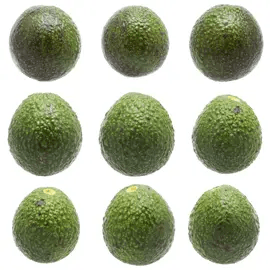Dietary Fats and Medical Weight Loss in Scottsdale and Chandler
 There are many types of fats, and most foods contain a variety of fats. Your body produces its own fat from excess calories while some fats are found in foods from plants and animals. These are known as dietary fats. Dietary fats, along with protein and carbohydrates, provide your body with energy. Although many people think of fat negatively, it is essential to your health because it supports a number of your body’s functions. Not all fats are bad. In fact, some even promote good health.
There are many types of fats, and most foods contain a variety of fats. Your body produces its own fat from excess calories while some fats are found in foods from plants and animals. These are known as dietary fats. Dietary fats, along with protein and carbohydrates, provide your body with energy. Although many people think of fat negatively, it is essential to your health because it supports a number of your body’s functions. Not all fats are bad. In fact, some even promote good health.
However, some types of fats can become harmful and can put you at risk for serious medical conditions if found in excess. It is important to know the difference between the various types of dietary fats, especially if you are going through a medical weight loss program. If you are choosing good dietary facts, make sure to enjoy them in moderation.
Harmful Dietary Fats
There are two common types of harmful fats:
- Saturated fats. This is mostly found in animal foods such as butter, milk, cheeses and meats. Some tropical oils like coconut oil, palm oil and cocoa butter are also rich in saturated fats.
- Trans fats. Some trans fats are produced naturally in certain foods, but most are made during food processing. This process is called hydrogenation. Trans fats are found in processed foods, snack (junk) foods, salad dressings and foods made with shortening or partially hydrogenated oils.
These types of fats are harmful because they elevate cholesterol levels and increase your risk of cardiovascular disease. These fats can hinder your medical weight loss if consumed frequently.
Healthier Dietary Fats
There are two common types of healthier fats:
- Monounsaturated fats. This type of fat can be found in foods and oils like avocado, olive oil, sunflower oil, nuts and peanut butter.
- Polyunsaturated fats. This is mainly found in plant-based foods and oils like soybean oil, tofu, soymilk and fatty fish like salmon or trout.
These “healthy fats” are said to lower cholesterol levels, lower your blood pressure and decrease your risk of heart disease. When trying to lose weight through medical weight loss, it’s good to keep these types of fats in mind when cooking with your medical weight loss meal replacements.
Know your Dietary Fats
It is important to be aware of the types of fats you are consuming. When you are working through your medical weight loss program, it is beneficial to know what you’re consuming and how much is enough. Talk to your doctor or weight loss specialist about the right amount of fats for your diet and generally shy away from highly processed foods that will contain high levels of trans fats. Take control of your diet and be aware of what’s harmful or helpful for your weight loss goals.
